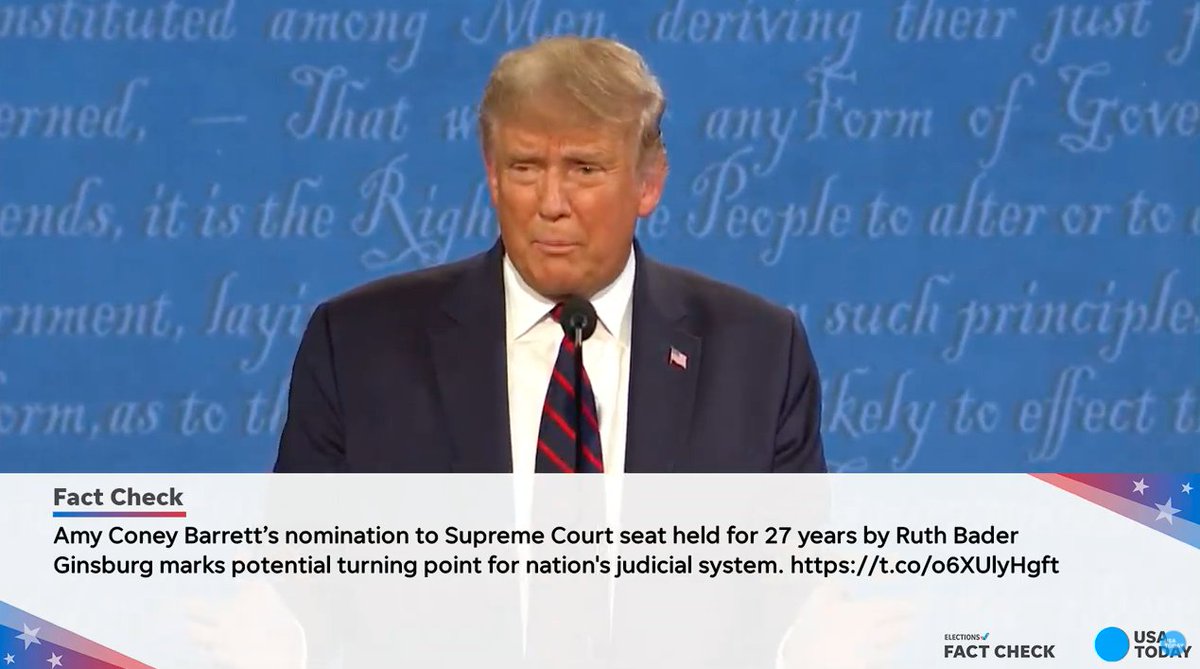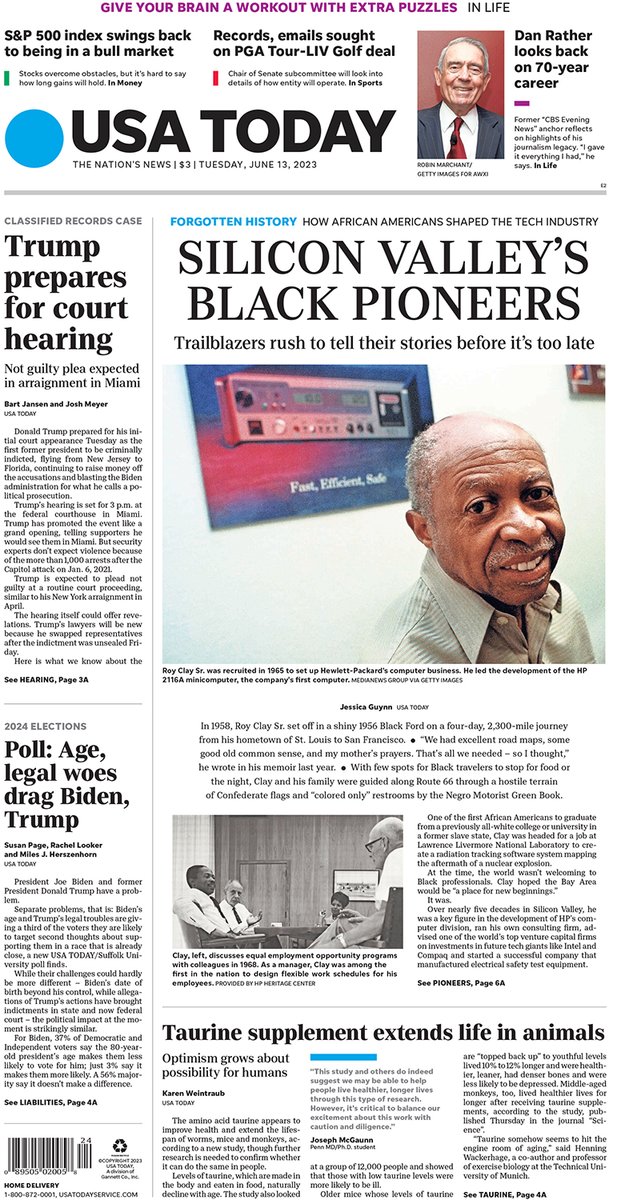"Fox News Sunday" anchor Chris Wallace opens the #PresidentialDebate with the Supreme Court: "Why are you right and make the argument you make, and your opponent wrong?" 

"She will be outstanding. She will be as good as anybody who has served on that court," President Trump says of nominee Amy Coney Barrett.
"We won the election and therefore we have the right to choose her."
"We won the election and therefore we have the right to choose her."

"The thing that should happen, is we should wait," Joe Biden says of the SCOTUS nomination and argues for waiting until the November election is decided.
"That's the only way the American people get to express their view."
"That's the only way the American people get to express their view."

President Trump: "I'm not elected for 3 years. I'm elected for 4 years."
Wallace to Trump: Over the last 4 years, you have promised to repeal and replace Obamacare, but you have not come up with a comprehensive plan... what is the Trump health care plan?
Trump says drug prices will be coming down, and says Biden could have done it in his 47 years.
Trump says drug prices will be coming down, and says Biden could have done it in his 47 years.
• • •
Missing some Tweet in this thread? You can try to
force a refresh











